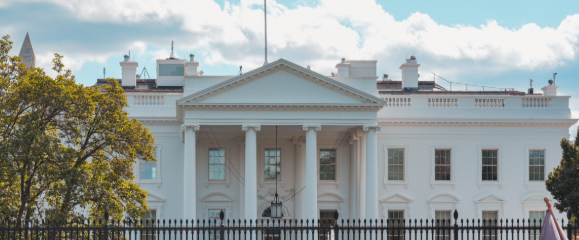Voter coalitions realigned, media influence shifted, and political strategies evolved as the 2024 election redefined America’s future.
What to Know:
- Pennsylvania saw a 25-point swing, with Independents 18 points more enthusiastic on economic issues and 7 points less with Cheney.
- Michigan had an 18-point shift, with Harris losing ground when focus moved from the economy.
- Over 50 million voters relied on podcasts and alternative media over traditional news.
- Economic populism surged, with “Made in America” branding gaining consumer trust.
- 2024 triggered a historic voter realignment, forcing both parties to adapt fast.
The 2024 presidential election delivered a seismic shift in American politics, with Donald Trump securing a second term through a coalition that defied traditional party lines. This realignment was not merely a political victory but a transformation in voter demographics, media consumption, and policy priorities. As we analyze this shift, it's crucial to understand the factors that contributed to this outcome and the implications for future political strategies.
A Closer Look at Voter Realignment
Echelon Insights, a leading political research firm, accurately predicted the voter realignment that characterized the 2024 election. Their analysis highlighted several key groups whose shifting allegiances were pivotal.
|
Key Groups Echelon Noted |
|
|
Moderate "Kitchen Table" Voters |
These individuals prioritized practical economic concerns. Initially supporting Biden in 2020 for stability, they grew uneasy with Harris's perceived left-leaning fiscal policies, leading them to favor Trump's economic messaging. |
|
Disillusioned Urban Progressives |
Frustrated by unmet promises, some urban progressives either abstained from voting or supported third-party candidates, diminishing the Democratic base in crucial areas.
|
|
Suburban Independents Concerned About Public Safety |
Influenced by "law and order" rhetoric, these voters were skeptical of Harris's stance on crime and immigration, finding Trump's positions more reassuring. |
|
Blue-Collar Populists |
Hoping for job growth and infrastructure improvements, this group felt underwhelmed by the previous administration's efforts and shifted their support back to Trump. |
Media Consumption and Messaging
An important shift in media consumption was also highlighted by the 2024 election. Traditional media outlets saw a decline in influence, with many voters turning to alternative sources for information. Podcasts, personal networks, and new media platforms became primary channels for political messaging. This shift allowed campaigns to target specific demographics more effectively and craft messages that resonated on a personal level.
Trump's campaign adeptly utilized these platforms, focusing on economic messaging that addressed voters' immediate concerns about inflation, cost of living, and job security. In contrast, Harris's campaign struggled to convey its economic agenda compellingly, often being out-communicated on these critical issues.
Effects on Companies and Advertisers
Consumers now choose brands like they choose news sources and political affiliations—by aligning with values. Playing it safe won’t work. The brands that embrace authenticity, target niche communities, and engage with purpose will dominate. The ones that don’t? They’ll get lost in the noise. Companies and advertisers can’t rely on old strategies in this new political and cultural landscape. Voter realignment is reshaping consumer behavior, forcing brands to rethink how they connect with their audiences. Traditional ads and neutral messaging aren’t enough—authenticity, niche engagement, and value-driven branding are now essential.
The political realignment has significant implications beyond the electoral landscape, particularly for businesses and marketers aiming to engage with these emerging voter blocs:
Young male “Rogan Listeners” consume alternative media and reject corporate polish. They value independence, financial freedom, and self-sufficiency, making them prime targets for brands that emphasize realness over marketing speak. Fitness, finance, and tech brands can thrive here—but only if they communicate organically and without corporate gloss.
"Crunchy Moms" prioritize health, transparency, and clean ingredients. They trust influencers and research products deeply. Brands in wellness, organic food, and holistic medicine must provide clear sourcing, ethical transparency, and authentic storytelling to win them over.
Economic populism is reshaping consumer trust. With trade protectionism and nationalist policies on the rise, companies must carefully balance global branding with appeals to local job creation and fair trade. Big corporations face growing skepticism, while “Made in America” messaging carries new weight.
Consumers now choose brands like they choose news sources and political affiliations—by aligning with values. Playing it safe won’t work. The brands that embrace authenticity, target niche communities, and engage with purpose will dominate. The ones that don’t? They’ll get lost in the noise.
Wrap Up
Democrats lost key voters because they failed to deliver on core economic issues. If they don’t prioritize affordability, jobs, and cost of living, they will continue to bleed support. Progressive rhetoric alone won’t win elections—results will.
Republicans expanded their base but now face the challenge of keeping it. Populist voters, working-class independents, and moderates came on board, but they won’t stay if the party reverts to outdated priorities. Holding this coalition together requires focus on economic growth, security, and strong national leadership.
The 2024 election redefined American politics. Voter coalitions shifted, media influence fractured, and both parties now face a transformed electorate. This realignment isn’t temporary. It’s a warning shot for every institution—political, corporate, and cultural. Voters are done with empty promises, media spin, and corporate pandering. The future belongs to those who understand this shift and adapt. Everyone else will be left behind.


